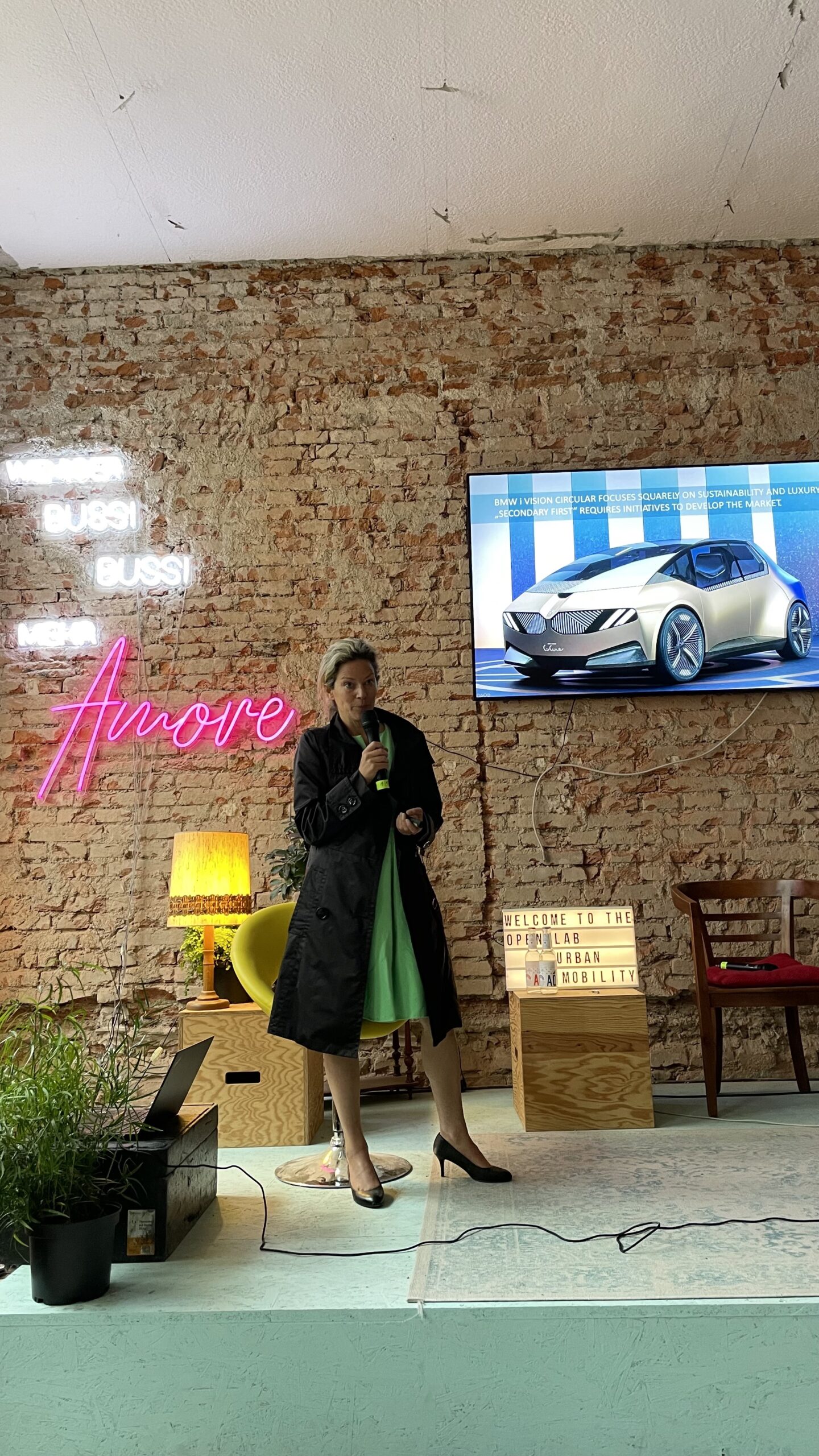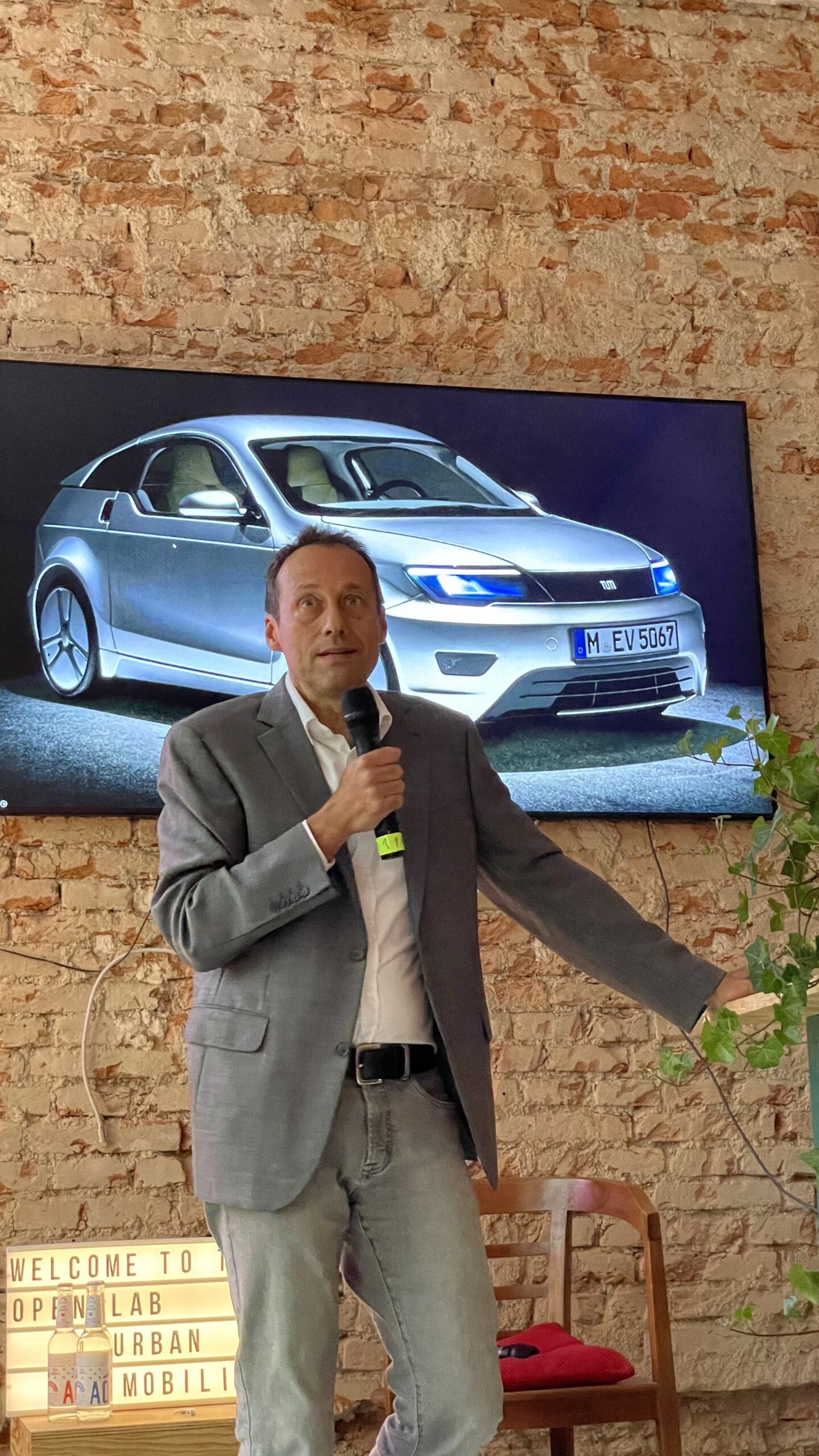In the inspiring atmosphere of the pop-up event location MUCBOOK CLUBHOUSE Franzi in Munich's Bahnhofsviertel, around 70 guests gathered on July 7, 2022 for the third edition of the Speaker Series "The future of mobility". The focus was on the question: "Sustainable & circular - buzzwords or a serious goal for the automotive industry?"
The event offered exciting impulses from two top-class experts:
Sustainability along the entire value chain
Dr. Irene Feige gave an in-depth insight into BMW's strategic realignment towards sustainability. The aim is to reduce CO₂ emissions across the entire value chain by 60 % by 2030 - BMW is aiming for climate neutrality by 2050. These ambitious goals were confirmed with the signing of the "Business Ambition for 1.5°C" of the Science Based Targets Initiative officially sealed.
Specific examples were used to illustrate how serious BMW is about this transformation:
Rethinking mobility: Avoid. Relocate. Improve.
Prof. Markus Lienkamp shed light on the future of mobility from a scientific perspective - and presented the ecological and economic added value of Electric vehicles in the sharing model to the fore. His core idea:
"Avoid. Relocate. Improve."
A concrete example: Public transportation make a significant contribution to reducing emissions when operating at high capacity.
Lienkamp also showed in a comparison of drive types that Electromobility significantly more climate-friendly with the right range than conventional combustion engines. Only by consistently rethinking mobility can we achieve the climate targets that have been set.
Discussion round: Questions from the audience
In the subsequent Q&A session, the guests showed great interest in the practical implementation of sustainable mobility strategies. Two particularly interesting questions were discussed:
We would like to thank Dr. Irene Feige and Prof. Markus Lienkamp for their inspiring contributions and exciting insights into the future of mobility.
A big thank you also goes to our host Fabienne Fuss for the great organization and the atmospheric location.


The lessons learned from the first MCube funding phase show which factors really drive projects forward - and where typical barriers arise.
Creating transparency, proving impact, sharpening strategies - the new indicator guide supports precisely this.
For the first time in this format, students made their way to three European cities. They went to Stockholm, Tallinn/Helsinki and Barcelona.
This time, mobility in the cities of Ljubljana, Genoa and Utrecht was examined.
How can mobility data and simulations make cities more liveable - and change visible and tangible?
What do Brussels, Lisbon, Milan and Paris have in common?
Where to put cars, bicycles and e-scooters - and how do we organize parking space fairly, efficiently and sustainably?
The Mobi-Score - The hidden costs of mobility at a glance
Resilient change towards sustainable mobility - lessons for a transformative urban mobility policy
Experimenting for the mobility transition - impetus for municipalities to dealing with real-world laboratories
No results available
What is MOSAIQ?
Imagine something: There is more space for people. The streets have more trees and plants. Everyone can get around better. That's how your Schwabing-West district could be in the future. How would you like your district to be? We want to talk to you about it!
The project is called MOSAIQ. MOSAIQ is a research∙project. MOSAIQ means: Mobility and urban climate in the future city∙part. The Technical University of Munich is leading the project.
What is MOSAIQ about?
MOSAIQ wants to make the streets in the city∙part more beautiful. People should feel comfortable there. There should be more space. For meetings and plants, for example. You can help decide what is tried out in the Stadt∙teil. The ideas come from you. Some ideas will be tried out on the streets for a certain period of time.
The aim of MOSAIQ is to make urban districts good places to live.
At the same time, the climate in the city should improve. And people should be able to move around the city easily.
What is happening in the district?